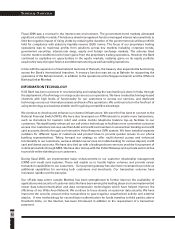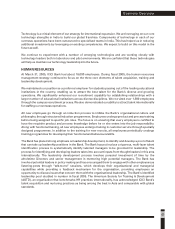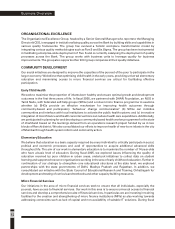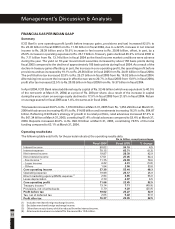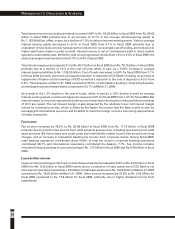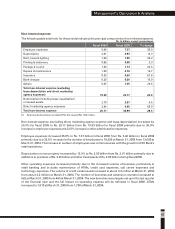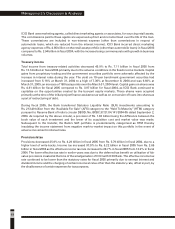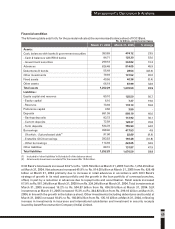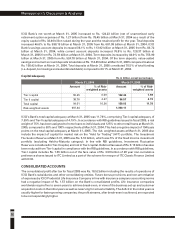ICICI Bank 2005 Annual Report Download - page 44
Download and view the complete annual report
Please find page 44 of the 2005 ICICI Bank annual report below. You can navigate through the pages in the report by either clicking on the pages listed below, or by using the keyword search tool below to find specific information within the annual report.
42
ORGANISATIONAL EXCELLENCE
The Organisational Excellence Group, headed by a Senior General Manager who reports to the Managing
Director & CEO, is engaged in institutionalising quality across the Bank by building skills and capabilities in
various quality frameworks. The group has evolved a holistic workplace transformation model by
integrating various quality methodologies such as Five S and Six Sigma. The group has been instrumental
in facilitating enterprise-wide deployment of Five S and is currently catalysing the deployment of quality
processes across the Bank. The group works with business units to leverage quality for business
improvements. The group also supports other ICICI group companies in their quality initiatives.
COMMUNITY DEVELOPMENT
Our social initiatives are designed to improve the capacities of the poorest of the poor to participate in the
larger economy. We believe that optimising child health in the early years, providing universal elementary
education and maximising access to micro financial services are critical for facilitating effective
participation.
Early Child Health
We seek to maximise the proportion of infants born healthy and ensure optimal growth and development
outcomes in the first three years of life. In fiscal 2005, we partnered with DHAN Foundation, an NGO in
Tamil Nadu, with federated self-help groups (SHGs) and a robust micro finance programme to examine
whether (a) SHGs provide an effective mechanism for improving health outcomes through
community-based and participatory ‘behaviour change communication’ (b) SHGs can mobilise
communities and interface with local institutions to activate the public health system; and (c) innovative
integration of microfinance and health care interventions can reduce health care expenditure. Additionally,
we participated in planning for and developing a community based health worker programme for the state
of Jharkhand based on the learnings derived from an operations research project funded by us in two
blocks of Ranchi district. We also consolidated our efforts to improve health of new-born infants in the city
of Mumbai through health system reform and community action.
Elementary Education
We believe that education is a basic capacity required by every individual to critically participate in social,
political and economic processes and avail of opportunities to acquire additional advanced skills
throughout life. The aim of our work in elementary education is to maximise the number of 14 year-olds
who have a basic level of education. During fiscal 2005, we explored issues influencing the quality of
education received by poor children in urban areas, undertook initiatives to collect data on student
learning and supported resource organisations working in the area of early childhood education. Further in
continuation of our strategy to strengthen core educational structures at the state level, we explored
partnerships with the state governments of Delhi, Madhya Pradesh and Rajasthan. In addition, we
consolidated our initiative with the State Council of Educational Research and Training, Chhattisgarh for
development and testing of curricula and textbooks and other capacity building measures.
Micro Financial Services
Our initiatives in the area of micro financial services seek to ensure that all individuals, especially the
poorest, have access to financial services. Our work in this area is to ensure universal access to financial
services and develop a comprehensive suite of financial services. In particular, we are investing in training
facilities for the creation and strengthening of micro finance institutions (MFIs) as also working towards
addressing constraints such as lack of capital and non-availability of suitable IT solutions. During fiscal
Business Overview
Dickenson Tel: 022-2625 2282










